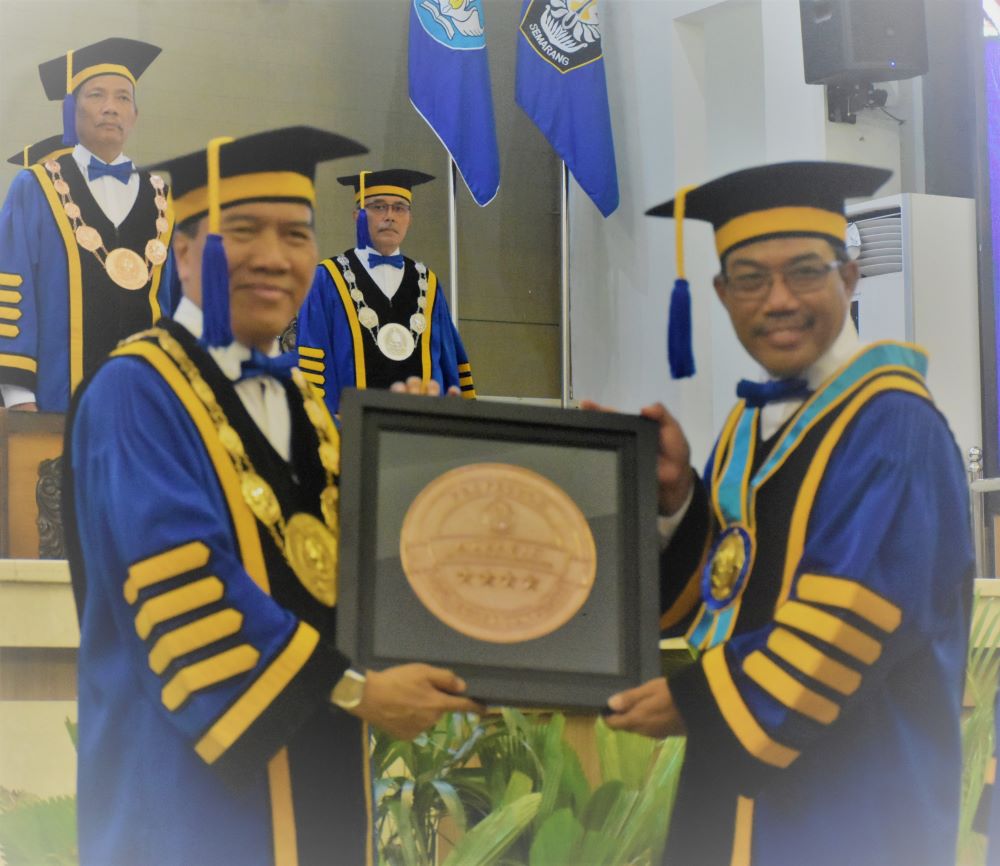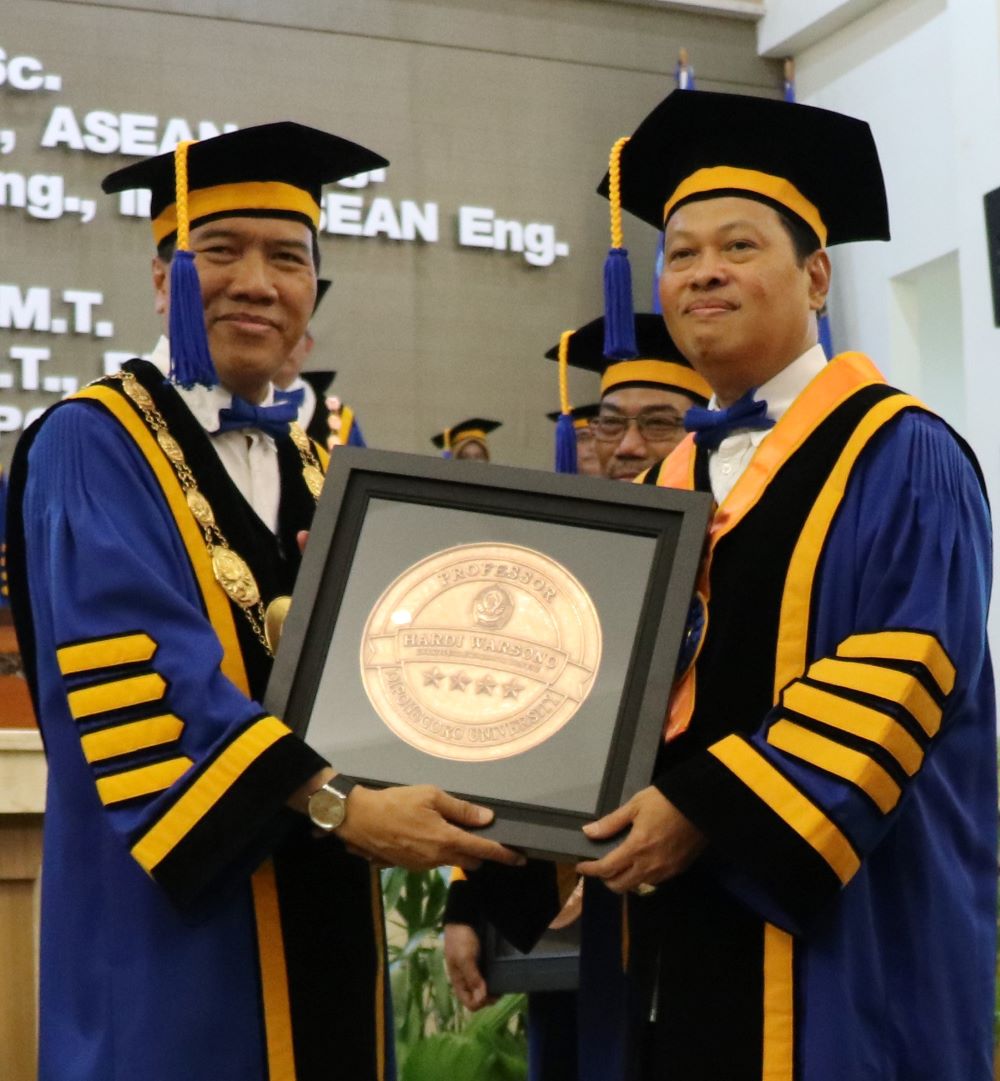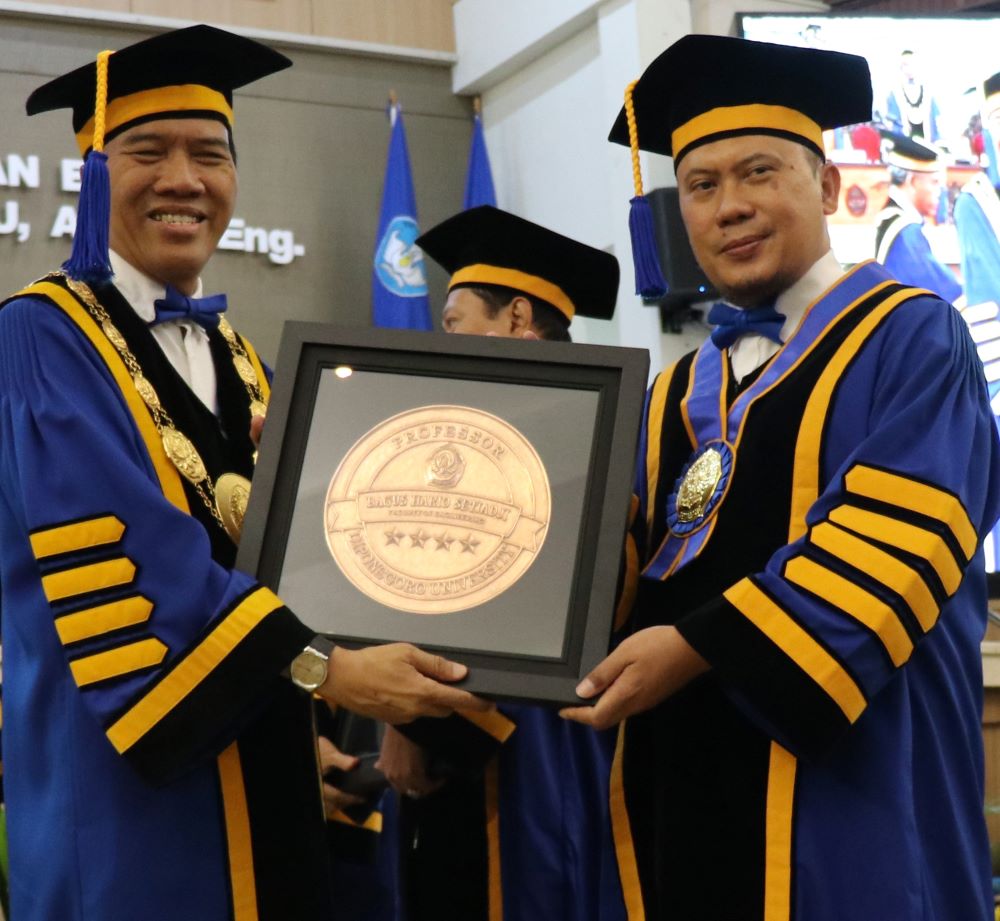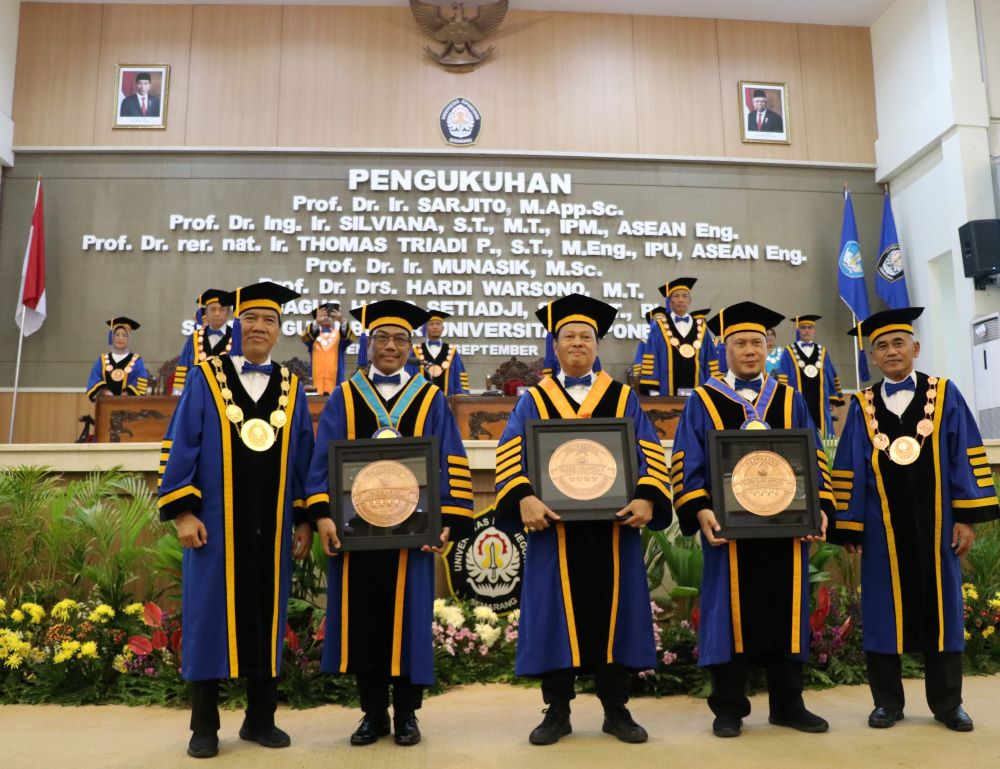Diponegoro University inaugurated three professors in the afternoon session of the third day, Thursday (7/9), at the Prof. Soedarto, S.H. Building, Undip Tembalang. The three professors who were inaugurated were Prof. Dr. Ir. Munasik, M.Sc. (Faculty of Fisheries and Marine Sciences); Prof. Dr. Drs. Hardi Warsono, M.T. (Faculty of Social and Political Sciences); and Prof. Bagus Hario Setiadji, S.T, M.T., Ph.D. (Faculty of Engineering).
 Prof. Munasik delivered a speech entitled “Smart Ecological Design of Artificial Patch Reef for Restoring the Indonesian Coral Reef Ecosystem.” Indonesia has the largest coral reef ecosystem in the world, almost a fifth of the entire global coral reef area with the highest species diversity. However, the ecosystem’s health declines until less than 10% remains in its best condition. For this reason, efforts to restore coral reefs are needed through restoration so that the ecosystem does not become extinct.
Prof. Munasik delivered a speech entitled “Smart Ecological Design of Artificial Patch Reef for Restoring the Indonesian Coral Reef Ecosystem.” Indonesia has the largest coral reef ecosystem in the world, almost a fifth of the entire global coral reef area with the highest species diversity. However, the ecosystem’s health declines until less than 10% remains in its best condition. For this reason, efforts to restore coral reefs are needed through restoration so that the ecosystem does not become extinct.
“The smart ecological design of Artificial Patch Reefs (APR) provides a solution for restoring coral reef ecosystems, namely the formation of new habitat more quickly, economically, so that the results can contribute to Sustainable Development Goals (SDGs), especially in increasing the environmental quality index and Indonesia’s marine health index,” he explained.
 Meanwhile, Prof. Hardi delivered a scientific speech entitled “Collaborative Governance and Bureaucratic Reform in Regional Cooperation Towards a Golden Indonesia 2045”. The delineation of administrative areas is often different from the functional delineation. Natural functions such as watersheds (DAS), regional roads, and the spread of physical and social diseases often cross administrative boundaries. Therefore, handling problems piecemeal within administrative areas could be more effective. Thus, synergy through cooperation between regions is needed.
Meanwhile, Prof. Hardi delivered a scientific speech entitled “Collaborative Governance and Bureaucratic Reform in Regional Cooperation Towards a Golden Indonesia 2045”. The delineation of administrative areas is often different from the functional delineation. Natural functions such as watersheds (DAS), regional roads, and the spread of physical and social diseases often cross administrative boundaries. Therefore, handling problems piecemeal within administrative areas could be more effective. Thus, synergy through cooperation between regions is needed.
“To realize Collaborative Bureaucratic Governance towards a Golden Indonesia in 2045, continuous bureaucratic reform is needed in managing cooperation involving two or more autonomous regions. It can no longer be managed with a rigid bureaucratic approach but should be managed with a networking and collaborative approach, ” said Prof. Hardi.
Meanwhile, Prof. Bagus said that road stability is an indicator that is the target for performance achievements of technical development agencies. The level of road stability is not a fixed value but constantly fluctuates during the service life of the road pavement.
“The involvement of technology in identifying, measuring, and compiling road functional condition data is highly recommended to avoid measurement error and human error, coupled with improved evaluation methods to obtain more accurate road functional condition results,” he concluded. (LW/Richal – Public Relations)











